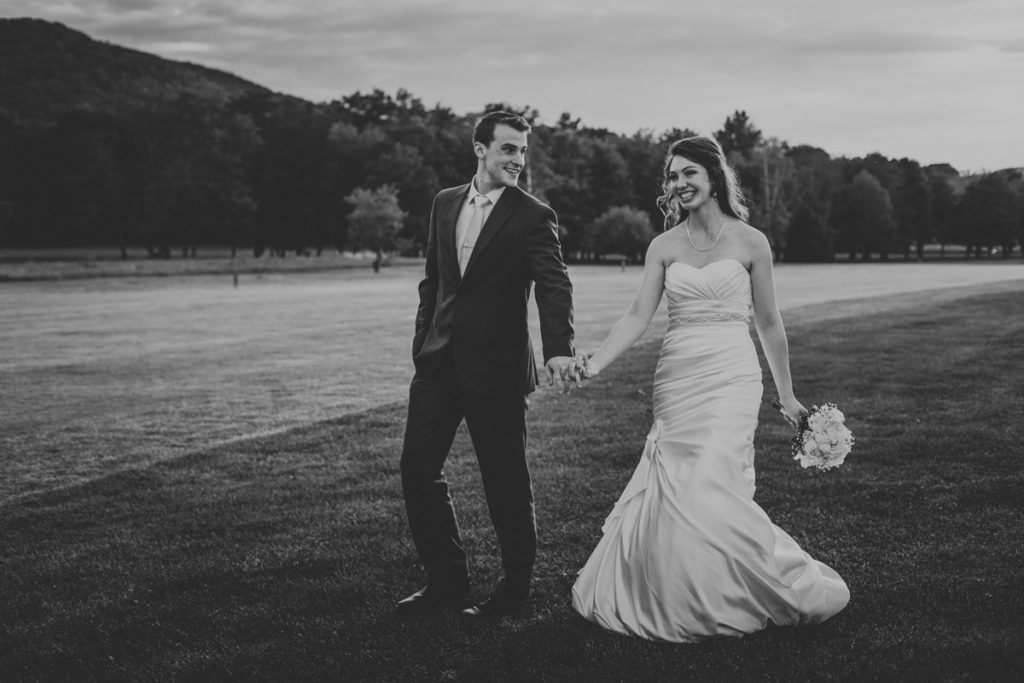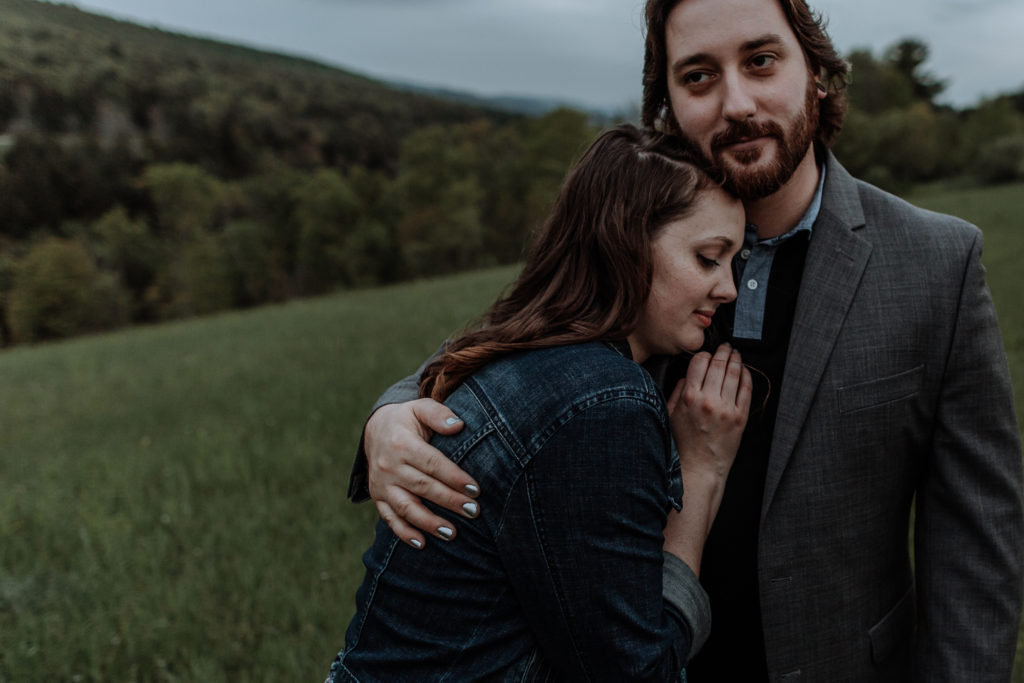Last Updated: February 14th, 2020
All photographers who take pictures of people – whether it be for portraits, at a wedding, at an event, or while out in public during travels – will face the question…Do you tell your clients before making a blog post about them?
This is something we’ve thought about ourselves. We recently saw a thread pop up on Reddit asking for input on the same question. We thought we’d give our two cents for our readers here.
Baseline Expectations
 Before we start exploring the legal side of posting pictures of other people, and just our own personal opinions on the matter, a reasonable starting point is figuring out what is normal to expect. This includes some assumptions on photography industry standards, what photographers are likely expecting from their clients, and what clients are expecting from their photographers.
Before we start exploring the legal side of posting pictures of other people, and just our own personal opinions on the matter, a reasonable starting point is figuring out what is normal to expect. This includes some assumptions on photography industry standards, what photographers are likely expecting from their clients, and what clients are expecting from their photographers.
What photographers expect
We can’t speak for “all photographers,” but it is an industry standard to share photos – be they in a blog post, private portfolio, on social media, in advertising, and so on. As wedding and portrait photographers, our livelihood really depends on being able to showcase our past work to new prospective clients.
With few exceptions, people who find us have been exposed to our work. They have seen photos of countless people, couples, their families, and so on.
Because it is necessary to share past work, photographers (reasonably) expect to be able to share any recent photos they create. This is especially true if no concerns were raised by a client in advance of booking.
What clients expect
Just like photographers, we obviously can’t speak for what goes through the mind of every client out there. In our experience, clients tend to fall into one of three camps about their photos being shared:
- They are happy about it – it’s fun to have a little exposure of their great shots
- They are apathetic – they don’t care if they are shared and don’t care if they are kept private
- They would prefer they are kept private – this is a for a variety of reasons (which we’ll discuss more shortly)
Given the expectations are quite diverse depending on the specific client, it’s important to set expectations early.
At a meeting with a prospective client, it can be worth asking how they feel about their images being shared. It can also be valuable to detail in writing how you handle their images, what you do with the photos, and so on.
However you decide to approach these conversations, you should always come at it from a place of empathy. Your clients are probably not out to screw you over by asking that you don’t share their photos. Privacy is a legitimate concern – especially today.
Respect for Privacy
One of the first ways we approach any conversation about whether we will end up putting up photos from a shoot is by thinking about how we’d want photos of ourselves to be treated.
A big selling point for our wedding photography service is that we have gone through the entire process of planning a wedding and getting married. As a normal part of this process, we found a photographer and got to experience first-hand what it’s like to have photos taken and the joy of receiving them. Our wedding photos inevitably ended up in a blog post.
This didn’t bother us.
It’s not like we want a whole lot of attention, but (at least for wedding photography), it seems to come with the territory. We found our photographer, looked through her portfolio of past weddings she was showcasing on her website, and decided to get in touch because of this. Our interest in her work was rooted in being able to see examples of it.
This is the logical side of our brains just talking out the situation. But, in practice, privacy operates on a continuum. What one person might be comfortable making publicly available, other people may not. This is influenced by a million factors.
Ultimately, we defer to the comfort of our clients and their requests. If they come to us and ask, “please don’t share these photos online,” we will not post them in any capacity. It sometimes stinks being unable to post beautiful images we’ve taken, but the client-photographer relationship is really important – and we wouldn’t want to break a sense of trust with someone who has given us the opportunity to photograph them.
A Variety of Requests
 Sometimes when we talk about not posting photos from a shoot online, we talk in absolutes. Sure, some people may not want any images to be posted. But others? Sometimes they just don’t want select photos shared.
Sometimes when we talk about not posting photos from a shoot online, we talk in absolutes. Sure, some people may not want any images to be posted. But others? Sometimes they just don’t want select photos shared.
In our experience, when we put together a blog post of wedding days – we tend to leave out more intimate or otherwise personal photos. For example, we do not post any family formals photos – as valuable as they are to wedding day, these family shots are much more personal than pictures of people candidly having a good time or of details from a venue.
On the few occasions where we’ve been asked to not post pictures, through a simple conversation we were able to find solid solutions such as:
- Please don’t share these specific images (select photos from a session) OR
- Please share with me the images you’re going to post before you post them
Both of these approaches still enable us to use photos in our content, but gives our client more control over the process.
The key here is this: when a concern like this is raised, it’s important to have a two-way conversation to resolve it. Often, there is a middle ground where you (as a photographer) can still benefit from your hard work, and your client can still be happy with the content posted (or not).
What are the legal requirements for privacy?
Before we go further, we just want to stop you here and make it known: we’re not lawyers or law professionals. If you are really wondering about the legality of what you are doing, there are better resources available including TheLawTog (if you want a blog) and consulting a lawyer.
Our writings on this aspect of privacy are fueled by our personal experience and readings, as well as the desire to showcase that the topic of posting images of your clients that you took is probably more complex than our photographer network would want us to believe.
Okay, with that said, personal opinion is well and good, but privacy is a topic that is also heavily covered by the law.
Every country (and even locales within each country) has their own requirements – and no doubt some are more stringent while others take a more hard line stance.
In the USA, for example, if you are photographing people in a public space – your photos are yours to use as you please. This includes if you happen to have people in your photographs. It’s one of the ways travel photographers capture candid/lifestyle images of people just living their lives.
In EU countries, privacy laws are much tougher since the recently instated General Data Protection Regulation (GDPR) went into effect in 2018. This has required much more transparency in how private information about people is being used – and most likely would impact how pictures could be used, too. Most likely, it is still totally acceptable practice to share images from your shoots, but you likely have to do more to make sure your clients are aware and on board.
By the way, are you a reader from a EU country and want to share your thoughts or how you’ve been impacted by the GDPR regulation changes? We’d love to hear in the comments!
These are just two examples in a world of complex legalities. Of course, what is “legal” and “illegal”, or just plain “okay” and “not okay” might boil down to our next section…
What does your contract say?
If you aren’t using contracts for the work you are performing, you are pretty much out of luck. While technically this would be an issue for your client, the court systems of the world tend to align themselves to protect consumers more than businesses. If you are going to use photos in any capacity (or, honestly, take photos at all) – you should have a contract in place that is signed and countersigned that details what the service is that you are providing, and how the images will be used (among other things).
If you do not have a contract or booking service, we would recommend for you to check out Honeybook. You can read our review, or go right to the site to check it out. If you use our link, you can sign up for a free 30 day trial. If you then decide to continue with the service, you can get 50% off your first year subscription!!
With that covered…two sections you should have in all of your photography contracts include the following:
You may want to tweak these to suit your specific interests. These are just the verbiage we use in our contracts to cover our use of images in a variety of situations.
Copyright.
Except as noted below, all photographs created by [Company Name] are copyright protected. It is a violation of federal copyright law to reprint, duplicate, digitally reproduce, copy, scan, or alter (digitally or otherwise), without [Company Name’s] express written permission. [Company Name] owns the copyright to all of the images received from my wedding and engagement session(s). I will be granted a print release for personal use of my images, however they may not be edited or altered in any way. Any commercial use of the images would constitute an infringement of US Copyright Law (USC Title 17), for which fines begin at $50,000.
Model release.
[Company Name] may only make reproductions for the Client or for [Company Name’s] portfolio, samples, website, social media or other self-promotions, or for professional competition and review. We will not make reproductions for other use without first obtaining written permission from you. This Agreement incorporates the entire understanding of the Parties, and the Parties agree to all its terms, and acknowledge receipt of a completed copy of the Agreement signed by all Parties. Any modifications of this Agreement must be in writing and signed by all parties. Each person signing as “Client(s)” below will be fully responsible for ensuring that full payment is made pursuant to the terms of this agreement. By signing this Agreement, we confirm that we agree to all terms and conditions outlined in this Agreement.
What do you think?
 We’ve covered this topic from quite a few different perspectives.
We’ve covered this topic from quite a few different perspectives.
Ultimately, our opinion on it really boils down to this:
No, we don’t normally tell our clients directly that we will be making a blog post about them. Everyone working with us is aware of our online portfolio, social media accounts, and so on. Portrait photographers cannot exist without sharing of pictures like this as these photos are reflective of our work. However, we are also well aware that for some people – sharing photos can bring up insecurities or privacy concerns, and we take these things seriously. As business owners and just human beings, we are understanding of these things – and take to heart our client’s wishes even if it means putting aside our own interests. We’d suggest any photographer asking themselves this question to take this approach!
So, now that you’ve reached the end of this post, what do you think? Share your thoughts in the comments below!